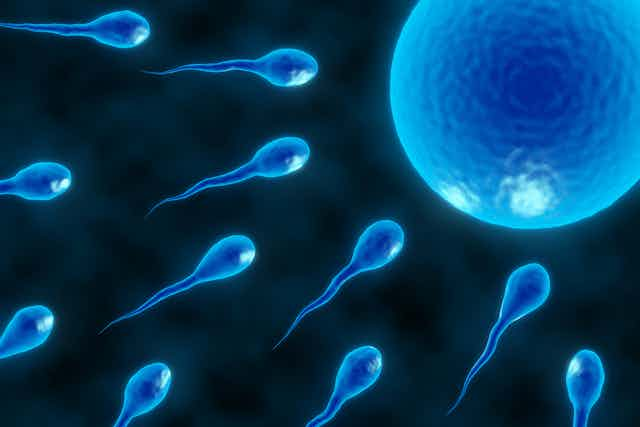Infertility is a global health challenge with distressing psychological and social consequences. Women in Africa pay a heavy social price including stigma and depression, for not having children. Sadly, infertility in Africa is mostly blamed on the woman.
Infertility is defined as the failure to conceive after one year or more of regular unprotected sexual intercourse. Globally it affects about 70 million to 80 million couples. In Africa, about 50 to 60% of all the reproductive health clinic visits are related to infertility. In Kenya, estimates show that infertility could be between 2 and 20%.
However, since 1978 advances in reproductive medicine have made it possible for men and women with infertility problems to get children through in vitro fertilisation (IVF). During this treatment, the egg and sperm are manipulated in a laboratory to yield superior quality fertilised eggs which are later planted in the womb.
There’s no registry in Africa for IVF treatment. But the available evidence shows that acceptability of fertility treatment has been growing on the continent.
But since 2002 there have been growing concerns in a number of countries about some infants being born with genetic disorders.
Studies have shown that children who are conceived through IVF are more likely to have genetic anomalies. Infants conceived through IVF have a significantly elevated risk of birth defects of about 30% to 40%, though it’s important to emphasise that the risk of bearing a child with an abnormality in IFV still remains extremely low.
One of the rare conditions that’s been identified is Beckwith-Wiedemann syndrome, which results in babies being born with some body parts that are larger than normal. Studies have shown that babies conceived through IVF are at 10 times greater risk of having Beckwith-Weidmann syndrome than the expected frequency from normal pregnancies.
We conducted a case study on a fetus that had been fertilised by IVF, and that was later aborted because it had multiple genetic disorders. The purpose of the study was to establish whether the fetus had Beckwith-Wiedemann syndrome. We concluded that,that was indeed the case.
The rarity of this genetic condition does not warrant discontinuing IVF for infertile couples. One possible solution to mitigating the risk would be to do a genetic test to identify defects in embryos before they are transferred to the uterus. Though this has been done successfully elsewhere, the procedure isn’t yet available in Africa.
The process
During IVF, the ovaries are stimulated by hormones known as gonadotropins so that they produce multiple eggs. Sperm are also collected to fertilise the eggs, hence the commonly used term “test tube” babies.
The source of the eggs and sperm can be from the couple trying for a child or a donation from a known or anonymous person.
The fertilised eggs, or embryos, are incubated in the laboratory under conditions similar to those of a person’s physiological state to meet the temperature, PH, oxygen and carbon dioxide parameters.
When the embryos are fully developed, one or two embryos are transferred into womb and the excess embryos are frozen for future use or donation to infertile couples.
Studies have shown that there is a link between IVF and the occurrence of some congenital malformations.
These genetic disorders include;
beckwith-wieldemann syndrome- causes large body size and enlarged organs
angelman syndrome- affects the nervous system and causes severe physical and intellectual disability.
russel-silver syndrome- the infants have poor growth both before and after birth
maternal hypomethylation syndrome- the infants are born with diabetes mellitus
Case study
A 32 year-old patient was diagnosed with secondary infertility. She was unable to fall pregnant – or carry a pregnancy for nine months – after the birth of one or more biological children.
She had a history of miscarriage in 2012 and had surgery a year later to remove fibroids. Her infertility was not treatable through surgery or medical treatment so IVF was advised and she successfully became pregnant.
However, in the fourth month of the pregnancy, a scan showed that the baby had major abnormalities. This meant that the chances of the baby surviving were minimal. She gave consent for an abortion to be done.
The fetus was diagnosed with Beckwith-Wiedmann Syndrome which occurs in one out of every 13,700 infants born through IVF . Research shows that the abnormalities happen during the very early developmental phase of the embryo.
The fetus we examined had the following features;
macroglosia- an enlarged tongue
neonatal hypoglycaemia- low blood sugar level
hemihypertrophy- enlargement of one side of the body
hypoglycaemia- low blood sugars
exomphalos- a weakness of the baby’s abdominal wall where the umbilical cord joins it
wilms tumour- cancer of the kidney
Way forward
Kenya’s first IVF baby was born on 8th May 2006. Since then, the number of IVF centres has increased to eight in the private sector and about 2,000 babies have been born. In sub Sahara Africa, South Africa and Nigeria are the leaders in this field.
A number of things can be done to mitigate the risk of IVF babies developing rare genetic diseases.In Europe research has been done that shows that ensuring laboratory conditions are as natural as possible is important.
And the manipulation of eggs and sperms, and embryos in the laboratory should be minimised.

